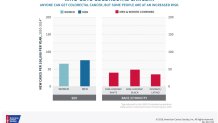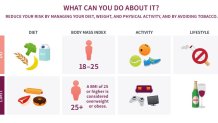Questions about colon cancer have been atop many minds following the tragic death of “Black Panther” star Chadwick Boseman at 43 last Friday.
Boseman privately battled the disease for several years before succumbing to colorectal cancer, which experts say is the second deadliest form of cancer in the United States.
"This disease is ravaging the Black community and it is as important as ever that everyone has access to and is receiving the recommended screenings,” said Dr. Durado Brooks, vice president of prevention and early detection at the American Cancer Society.

Brooks says screening tests are available, even during the coronavirus pandemic, and can help prevent or detect the disease in its earlier, or more treatable stages.
According to the American Cancer Society, rates of colorectal cancer in younger age groups are on the rise. In 2020, about 18,000 people under the age of 50 are predicted to be diagnosed with colon cancer. That’s about 12 percent of all cases in the U.S.
The ACS recommends that average-risk people begin treatment at 45 years old, while those who may have a higher risk begin screenings earlier. Higher risk factors include:
- Family or personal history of colorectal cancer or certain types of polyps
- Personal history of inflammatory bowel disease (ulcerative colitis or Crohn's disease)
- Known family history of a hereditary colorectal cancer syndrome such as familial adenomatous polyposis (FAP) or Lynch syndrome (also known as hereditary non-polyposis colon cancer or HNPCC)
- Personal history of radiation to the abdomen (belly) or pelvic area to treat a prior cancer

Several ways to reduce your risk of colon cancer are adapting a healthier and active lifestyle, quitting smoking and limiting consumption of alcoholic beverages.
Local
For more information and resources on colon cancer prevention or treatment, click here.



